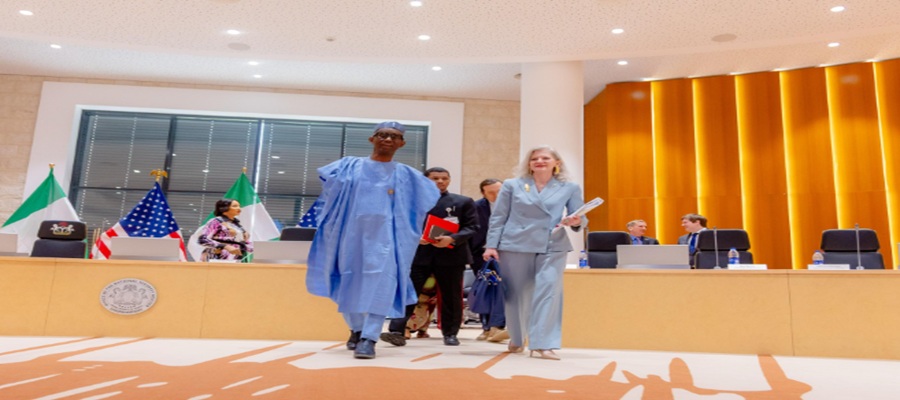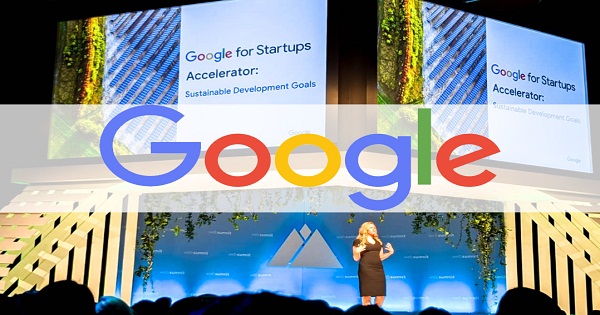General News
BRICS Leaders Seek Inclusive Access to AI

To support a constructive debate towards a balanced artificial intelligence (AI) approach, the BRICS leaders have agreed on a set of guidelines to foster responsible development, deployment and use of AI technologies for sustainable development and inclusive growth.

The leaders of the BRICS nations – Brazil, Russia, India, China and South Africa – published a joint statement calling for a global governance framework for AI that is inclusive, representative and rooted in the principles of sovereignty, development and ethical responsibility.
The guidelines, which strictly refer to the use of AI in the non-military domain, should be applied through either domestic or applicable international frameworks, as well as through the development of interoperable standards and protocols, in inclusive, transparent and consensus-based processes, the statement reads.
BRICS is a political and diplomatic coordination forum for countries from the Global South. This year’s theme was “Strengthening global south cooperation for more inclusive and sustainable governance”.
The BRICS leaders’ statement positions AI as a transformative force for sustainable development and innovation, while also warning against uncoordinated governance models that could deepen global inequities, marginalise developing nations and fracture multilateralism.
It emphasises that AI governance should be anchored in the United Nations system to ensure inclusivity and legitimacy.
The BRICS countries warn against a fragmented regulatory landscape, advocating for co-ordinated multilateralism that includes the voices of developing countries – particularly from the Global South.
BRICS leaders reaffirmed their support for Digital sovereignty, saying each country must retain the right to shape AI policy and technology in line with its own development goals and legal frameworks. This includes capacity-building, data governance and technological autonomy.
“We firmly support the right of all countries to harness the benefits of the digital economy… to develop capacities in AI research, foster technological autonomy and innovation, ensure data protection, and promote their own digital economy,” the statement reads.
A major theme in the document is the need for fair, equitable and inclusive access to AI technologies. The BRICS leaders stress that all countries – regardless of economic standing – must be able to access and benefit from AI.
The group also called for global co-operation in building data governance frameworks that allow developing countries secure and equitable access to data, with full respect for privacy, intellectual property rights and national laws. This ties into support for open science, open innovation and open-source AI models that can fuel local innovation ecosystems.
On intellectual property, the statement advocates for a balance between proprietary rights and public interest to prevent exploitative data practices and ensure transparency in AI model development and deployment.
The BRICS countries voiced concern over algorithmic bias and the exclusion of underrepresented cultures and languages in AI datasets and models.
They called for ethical, transparent and accountable AI development that reflects cultural, demographic and linguistic diversity.
They also endorsed UNESCO’s Recommendation on the Ethics of Artificial Intelligence and called for international co-operation to develop inclusive datasets, tools to flag misinformation and mechanisms to mitigate bias – especially against vulnerable groups like women, children, the elderly and people with disabilities.
The BRICS nations stressed the importance of using AI as a tool for sustainable development, citing sectors such as healthcare, agriculture, education, energy and environmental conservation as priority areas.
They urged that AI development must be environmentally responsible, minimising carbon emissions and e-waste.
The potential of AI to enhance productivity and job creation was also recognised, as well as the risks of job displacement and exploitation. The statement calls for policies that safeguard worker rights, ensure compatibility between AI and human capabilities, and promote decent work in the digital economy.
“It is imperative to safeguard the rights and wellbeing of all workers, particularly those directly affected by the digital transformation… including generative AI,” the statement says.
The BRICS statement ends with a commitment to intensify co-ordination on AI governance and share the guidelines across international platforms. It extends an open invitation to other developing countries to contribute to and refine the emerging global framework for AI.
“We welcome contributions to further develop these guidelines, particularly from other developing countries, and will remain open to revisiting them.”
General News
Nigeria Treats Religious Violence as Attack on State – NSA Ribadu

National Security Adviser Nuhu Ribadu has said the federal government considers religious violence an attack on the Nigerian state, stressing that the protection of all citizens, regardless of faith, is non-negotiable.

According to presidential spokesperson Bayo Onanuga, Ribadu made the remarks in Abuja at the close of a US–Nigeria Joint Working Group session.
“Nigeria is a deeply plural society, and the protection of all citizens, Christians, Muslims, and those of other beliefs, is non-negotiable,” Ribadu said.
“Violence framed along religious lines is treated as an attack on the Nigerian state itself.”
In a follow-up post on X, Ribadu said the joint working group has recorded “tangible operational gains” in the fight against terrorism.
The working group was set up following Nigeria’s designation as a Country of Particular Concern (CPC) by US President Donald Trump, a label that often triggers policy actions aimed at ending severe violations of religious freedom.
At the meeting, Ribadu led Nigeria’s delegation, which included representatives from 10 ministries and agencies, while the US delegation, made up of eight federal agencies, was led by Allison Hooker, US under-secretary of state.
Ribadu said Nigeria-US security cooperation has moved from dialogue to action, resulting in the disruption of terrorist networks and transnational criminal groups. He also praised the US for supplying drones, helicopters, platforms, spare parts, and other support systems over the past five years.
Speaking at the session, Hooker said the US was committed to expanding its partnership with Nigeria, particularly on deterring violence against Christian communities.
“Today, we are here to discuss how we can work together to deter violence against Christian communities, prioritising counter-terrorism, insecurity, investigation of attacks, and holding perpetrators accountable,” she said.
She added that efforts would focus on reducing killings, forced displacement, and abductions of Christians, especially in Nigeria’s north-central states
General News
PalmPay User Shares Experience on Fintech Apps to Trust in Nigeria

For many Nigerians, fintech apps are judged by one simple question: Can I trust the platform? For Happiness, a young Nigerian entrepreneur, the answer manifested in the most defining moments of her life.

Trust Built Through Everyday Use
In 2025, Happiness relied on PalmPay to run her business, from receiving customer payments, paying vendors, and managing daily transactions. During PalmPay’s Hustle Grant Campaign, she joined thousands of small business owners hoping to win the N500,000 funding.
While she didn’t make the shortlist, the campaign gave her business something just as valuable: visibility. New customers discovered her brand, enquiries increased, and sales followed.
PalmPay didn’t just host a campaign; it created an ecosystem where small businesses could be seen and supported.
Just days later, Happiness’ life changed. On August 30, 2025, she lost her father. With this loss came challenges, especially payments. They tried transferring money through regular banks but were met with declined transactions. Happiness suggested using her PalmPay account and it was successful.
In a moment defined by loss and urgency, PalmPay cut through the chaos, proving that reliability isn’t a feature, it’s a lifeline. Happiness’ relationship with PalmPay didn’t stop at transactions. Through other management tools on the app, she learned to build discipline around her finances.
More Than an App, a Financial Partner
Beyond transactions, PalmPay’s tools helped Happiness build better money habits and financial discipline. Today, the brand continues to reward reliability through initiatives like its ongoing Premier Cool campaign, reinforcing a simple message: consistency should come with value.
The idea is simple: Purchase a bar of soap and stand a chance to get ₦10,000cash and other cash benefits.
It’s PalmPay’s way of saying that smart money habits deserve real value in return.
Why PalmPay Earns Trust
Life doesn’t give warnings before it tests you. When it does, you need a platform that doesn’t just usually work but always works.
For many users, PalmPay proves to be more than a payment app. It is a trusted partner powering ambitions, supporting users through defining life moments, while helping them bank smartly.
When it mattered most, PalmPay worked. To watch the full testimonial visit: @palmpayapp_ng
General News
Nigerians Target Self-Improvement, Business Startups in 2026 Google Data

Google Search data from the first two weeks of 2026 reveals Nigerians are prioritising ambition, self-growth, and entrepreneurial ventures as they embrace the new year with renewed drive for personal and professional excellence.

The data shows a 40 per cent spike in searches related to self-improvement and “becoming better”, reflecting a nationwide shift from mere resolutions to actionable plans across boardrooms, classrooms, and homes. Entrepreneurship leads the charge, with “how to start a business” topping “how to start” queries after an 80 per cent surge, alongside rising interest in blogging, podcasting, and YouTube channels to foster economic opportunities.
Personal development dominates, as searches for “how to be a better person” rose 20 per cent, extending to relationships with queries on becoming better lovers, partners, husbands, wives, and listeners. Health resolutions gain traction, with 40 per cent increases in “how to eat healthy”, “healthy diet”, and “how to meditate” underscoring commitments to physical vitality and mental wellness.
Skill mastery captivates diverse audiences, from “how to improve English” and communication skills to enhancing memory, credit scores, and even handwriting, while leisure pursuits spike in “how to get better at” chess, singing, running, Fortnite, and soccer. Top searches include “how to improve communication skills”, “how to be a better listener”, and entrepreneurial starters like “how to start a podcast”, painting a portrait of a nation honing edges for success.
Taiwo Kola-Ogunlade, Communications and Public Affairs Manager for West Africa at Google, described the trends as a “powerful reflection of Nigeria’s collective ambition”, affirming the company’s dedication to tools like Search and Gemini for guiding Nigerians toward prosperity

 General News3 days ago
General News3 days agoPalmPay User Shares Experience on Fintech Apps to Trust in Nigeria

 News3 days ago
News3 days agoStakeholders Demand Stronger Governance and Infrastructure to Drive Tech Adoption @ Lagos AI Summit

 General News3 days ago
General News3 days agoNigerians Target Self-Improvement, Business Startups in 2026 Google Data

 News3 days ago
News3 days ago35 Million Nigerians Face Acute Hunger in 2026, UN Warns

 General News3 days ago
General News3 days agoHow Inside Jobs and Policy Shocks Trigger Nigeria’s Rising Loan Crisis

 E-Financial12 hours ago
E-Financial12 hours agoFirst Asset Management Receives Upgraded Ratings from Agusto &Co and DataPro

 General News12 hours ago
General News12 hours agoNigeria Treats Religious Violence as Attack on State – NSA Ribadu

 News12 hours ago
News12 hours agoAnambra Cuts Monday Pay to Kill Sit-at-Home













